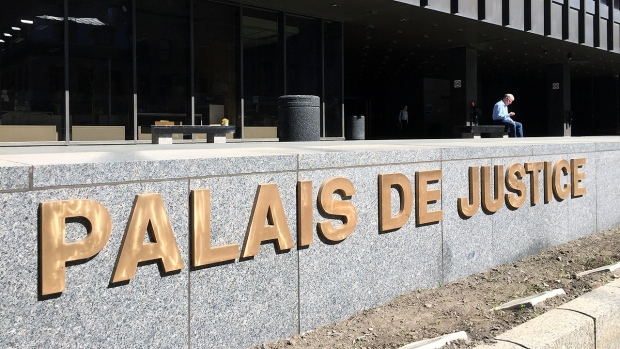McGill University students gathered to sit-in against Quebec’s Bill 21 outside the Montreal courthouse on Nov. 2. Organized by Non à la Loi 21, the McGill Muslim Law Students’ Association, RadLaw McGill, and the Muslim Student Association at McGill, the peaceful demonstrations took place at 8:00 a.m., promptly before the Bill was to be challenged by plaintiffs at the courthouse. In addition to the sit-in, the student coalition, which is a collective of clubs at McGill who denounce Bill 21, composed an open letter to repeal the Bill.
In 2019, the centre-right Coalition Action Démocratique (CAQ) party, led by Quebec premier François Legault, introduced Bill 21, An Act respecting the Laicity of the State, by invoking section 33 of the Charter of Rights and Freedoms. Known as the notwithstanding clause, section 33 enables legislation to bypass essential rights as defined in the Charter. The Bill describes a list of civil servant positions and governmental occupations—including legislators, police officers, prosecutors, and teachers—who are banned from wearing religious symbols while working. Since its introduction, Bill 21 has been largely opposed due to its disproportionate effects on minorities.
Irfan Tahiri, L3 Law and organizer with the Coalition Against Bill 21, expressed the motivation behind the protests and the forming of the Coalition.
“The law forces religious people […] to compromise their dignity and conscience in order to work for the provincial government,” Tahiri said. “It is unreasonable to impose such a harsh burden to promote a secularism that was never under threat. Indeed, in the climate of growing Islamophobia, anti-Semitism, racism, and xenophobia within Quebec, Bill 21 moves Quebec backwards towards a society marked by fear and division as opposed to harmony and unity.“
In regards to the actions of the student coalition, Gillian Aldridge, U3 Arts and one of NDP McGill’s co-presidents, spoke on behalf of NDP McGill and stated that they stand in solidarity with the Coalition Against Bill 21.
“NDP McGill recognizes the intrinsic value of pluralism and inclusion both in the McGill community and in Quebec as a whole, and are deeply concerned by the implications of Bill 21 for religious minorities,” Aldridge said. “We stand unequivocally in support of the efforts of the Coalition Against Bill 21 [….] We once again urge the Government of Quebec to reverse this law and to reaffirm this fundamental right of all Canadians.”
Khadija Ahmed, L2 Law and co-president of the Muslim Law Students’ Association, was a participant at the protest. Ahmed spoke to the Tribune/and reflected upon her experience.
“I’m proud of our sit-in on Monday,” Ahmed said. “We received a lot of support and coverage. The dean of our law school was also present at the sit-in [….] We were a large group of mostly law students standing in solidarity with the plaintiffs and standing against this discriminatory law. We showed that we cared very much about this law and the people fighting it. Many of the people who came were my classmates who are not directly impacted by this law. I’m proud and grateful for my allies, especially.”
Ahmed expressed her sentiments towards the fundamental inconsistencies of Bill 21 and the way in which they inordinately impact minorities, like herself, who work in the public sphere.
“[Bill 21] places an additional glass ceiling for some students who identify as women and are also racialized that is unfair,” Ahmed said. “[The Bill] is discriminatory and the government is curtailing this allegation by invoking section 33 of the Charter, but it doesn’t change its discriminatory effect and its violation of fundamental freedom [….] If the majority of people in Quebec want secularism, we can ensure religious neutrality through other means like through individuals’ actions, behaviours and conduct, not by superficially cleansing the public sphere from religious symbols.”









